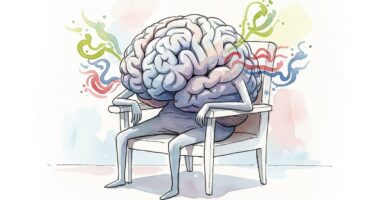Political misinformation or disinformation was the key reason for some US couples’ recent divorces or romantic breakups, according to a study by the University of Illinois Urbana-Champaign.
Emily Van Duyn, a professor of communication at the university, conducted in-depth interviews with 28 people who had recently ended a relationship with a partner whose political ideology did not match their own. Many of the participants mentioned that their media choices were responsible for the political differences that ultimately caused the relationships to end.
The failed relationships ranged from committed dating relationships or cohabitations of several months or a year to marriages that ended in divorce after 23 years. The political ideologies and identities of those interviewed and their former partners included Libertarian, Conservative, Democrat, Republican and Progressive.
“It’s important to note that these relationships were not doomed for failure because of differing political beliefs,” the author said. “They failed, at least in part, because those differing beliefs were associated with different realities that disrupted a shared identity and shared reality with their partner.”
Van Duyn said the study participants’ experiences went beyond differing interpretations of political facts because false information created alternate, fictional realities that isolated the partners from each other ideologically and relationally, straining their bonds until the relationships failed.
Partners’ rabbit-holing behaviours on digital media, fixatedly diving into obscure topics, particularly extreme or false political information, and absorption in prominent conspiracy theories and groups ignited relational tension. This friction eroded some couples’ mutual views of reality, particularly when one partner questioned the validity of the information, media or communities that the other person was enmeshed with.
A 28-year-old Libertarian man pseudonymously called Adam in the study said his relationship with his ex-girlfriend of several months fell apart during the COVID-19 pandemic. Sceptical of the mainstream media, his ex-girlfriend perceived as credible and that he viewed as propagandist, Adam said he preferred to get information from online videos and Libertarian media personalities that he believed were more moderate.
A 48-year-old white man pseudonymously called James in the study said his marriage of 23 years ended when his ex-wife went down the rabbit hole of every conspiracy theory that developed and changed her political views. Although they both voted for Hillary Clinton in 2016, his partner’s views changed when a friend shared a conspiracy video about a purported satanic paedophile ring.
The findings, published in the journal New Media and Society, underscore that individuals’ media habits are not separate from their relationships and that rabbit-holing behaviours and misinformation consumption can widen the social divides between partisans, even those that love each other.










